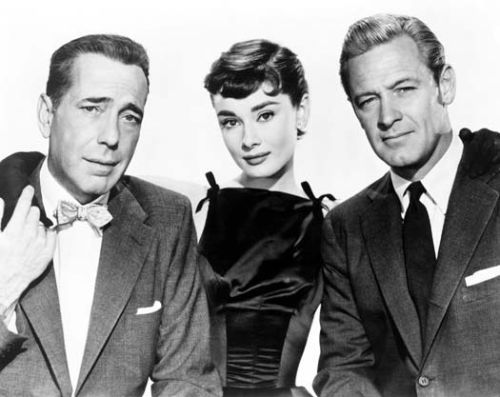Is the pursuit of material gain moral? Is it just? Which is more important ethically- how you earn your money or how you spend your money? These and a plethora of other tricky questions were at the heart of this episode. EconTalk host Russ Roberts welcomed back economics Professor Dan Klein to discuss a provocative essay of Klein’s, “Is it Just to Pursue Honest Income?”
Spoiler alert: the answer to most of these questions is, it’s complicated. For example, how do you know what a good movie is? Could you actually construct a movie -rating index? When you “rate” a movie, can you really explicate how you arrived at that rating? Tough to answer, isn’t it? The movie Sabrina comes up several times in the conversation, with both Roberts and Klein agreeing it’s a good one… We’ll come back to Linus Larrabee soon… Because we’re interested in how you would approach these issues. We hope you find the prompts below useful to start- or continue- a great conversation.
1- Klein says among the fundamental questions he was trying to explore in his essay are: Does the work that we do in exchange for money make the world a better place? Does it advance the good of the whole? How do we know? How do you answer these questions with regard to your work? How has this episode altered the way you think about your work? About the the world of work and commercial exchange generally?
2- What is the difference between commutative and distributive justice? How is Klein’s conception of honest income illustrative of commutative justice? How is deciding how to earn your income a question of distributive justice?
3- What does Klein mean when he says, “…there are very serious knowledge problems in second-guessing people’s ethical choices.” To what extent do individuals also face knowledge problems in making ethical choices with regard to work? (Think of the examples Roberts offered such as Adam Smith‘s position at the Customs Commission, Michael Jordan’s brief baseball career, and Paul Graham’s [mock] graduation speech?) How can we best equip ourselves to make such ethical judgments?
5- Revisit this clip from the movie Sabrina in which Linus Larrabee (Humphrey Bogart’s character) proclaims, “If making money were all there was to business, it’d hardly be worthwhile going to the office. Money is a byproduct.” To what extent does this clip illustrate Adam Smith’s parable of the poor man’s son? How do you think Larrabee will end his days, and what does this have to tell us about the pursuit of just income?
5- Toward the end of the conversation, Roberts challenges Klein: “…once you enshrine money as virtuous, which is what you’re implying, you excuse all kinds of really rapacious and ugly things. And [Adam] Smith wouldn’t like that, Dan.” How does Klein respond to this challenge? When is the making of an additional dollar unbecoming? Or honest profit serving folly? Is Linus Larrabee really pursuing just income? Or is he simply legitimating/rationalizing his income as just? Or both?
Bonus Question: Roberts tells Klein that he frequently receives some version of the following question: ‘I really believe in liberty and I’d like to make the world a better place. What should I do?’ How would you answer this question???


Comments are closed.